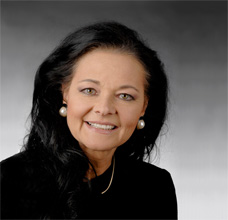 Laura H. Kahn, M.D., M.P.P., General Internist and Research Scholar with the Program on Science and Global Security at the Woodrow Wilson School of Public and International Affairs, Princeton University.
Laura H. Kahn, M.D., M.P.P., General Internist and Research Scholar with the Program on Science and Global Security at the Woodrow Wilson School of Public and International Affairs, Princeton University.
One Health is a concept that seeks to integrate human, animal, and environmental health since all are inextricably linked. This concept is not new and indeed can be traced back to ancient times when the Greek physician, Hippocrates, noted that human health depended on a clean environment. The Romans advanced the concept of a clean environment by building extensive aqueducts and public toilets. Unfortunately, the recognition of the importance of environmental cleanliness waned during the Dark Ages and didn’t appear again until the French Revolution when French physicians promoted the concept of public hygiene. Read More »

Murray L. Cohen, Ph.D., M.P.H., C.I.H, President and Chairman of the Frontline Healthcare Workers Safety Foundation, Ltd.
As recently as 10 years ago, you could count the number of BSL-4 labs throughout the world on your hands, and the private sector was decommissioning BSL-3 labs for lack of work. Since then, the number and size of these facilities have been increasing due to global awareness and preparedness for bioterror threats, and recognition of pandemic-possible emerging infections. The rapid expansion of life sciences laboratories creates an increasing demand for well trained professionals from many fields in order to operate, protect and conduct research in these facilities. Proper and ongoing biosafety and biocontainment training for all staff of these facilities can significantly reduce the chance that a laboratory incident or accident will become a threat to the community and surrounding environment. All workers in these facilities must be properly trained in the specific techniques and with the specific equipment that they will be using in the laboratory. Support personnel to operate, maintain, and secure the equipment and facilities, conduct inspections, and care for laboratory animals also require specialized training.1 Read More »
 Victoria Sutton, MPA, PhD, JD, Professor and Director
Victoria Sutton, MPA, PhD, JD, Professor and Director
Center for Biodefense, Law and Public Policy
Texas Tech University School of Law
On May 16-24, 2011, the World Health Assembly debated the destruction of the last smallpox that exists, officially. This meeting is the fourth meeting, convening every five years, to review the question of whether to destroy the last remaining smallpox.
The two nations holding the remaining samples are the United States and Russia, and are the only two WHO member nations arguing against destruction. The WHO requested a briefing paper last year, in order to inform the discussion at this year’s 64th World Health Assembly, and it reads, “The two countries that retain variola virus do so not for any defensible or essential public health reason. They do so out of exaggerated and unsubstantiated security concerns and mutual suspicions between them.” Read More »
 Gerald L. Epstein
Gerald L. Epstein
Director, Center for Science, Technology, and Security Policy
American Association for the Advancement of Science
A White House meeting convened by the Office of Science and Technology Policy in September 1997 brought together representatives from many United States government agencies that had responsibility for biological risks — whether natural, accidental, or intentional. The ostensible purpose was to discuss a report on epidemiological surveillance that Congress had required the Administration to prepare. But there was another objective – to identify the many different agencies and individuals who had some bearing on this issue, and to start introducing them to each other. Many of the attendees had never previously been in the same room. Their official responsibilities — which included human health, arms control, counterterrorism, emergency response, intelligence, agriculture, drug development, and battlefield biodefense – were diverse and largely non-overlapping. Up until then, there had been little reason for people with missions so different to have had reason to work together. Read More »
 Today we are pleased to announce the launch of the Biosecurity Codes section on the VBC, an expansive resource composed of codes of ethics, conduct and best practices established around the world for life science professionals.
Today we are pleased to announce the launch of the Biosecurity Codes section on the VBC, an expansive resource composed of codes of ethics, conduct and best practices established around the world for life science professionals.
Biosecurity Codes is a full integration of the codes collected by the Organisation for Economic Cooperation and Development (OECD). It will serve as an active resource of global information on oversight mechanisms, and particularly codes-of-conduct for the biosciences research community, in order to promote responsible oversight of the biosciences.
Read More »
- March 31, 2011
- | Filed under OECD, VBC, and Policy & Initiatives
- Share
 Laura H. Kahn, M.D., M.P.P., General Internist and Research Scholar with the Program on Science and Global Security at the Woodrow Wilson School of Public and International Affairs, Princeton University.
Laura H. Kahn, M.D., M.P.P., General Internist and Research Scholar with the Program on Science and Global Security at the Woodrow Wilson School of Public and International Affairs, Princeton University. 
































